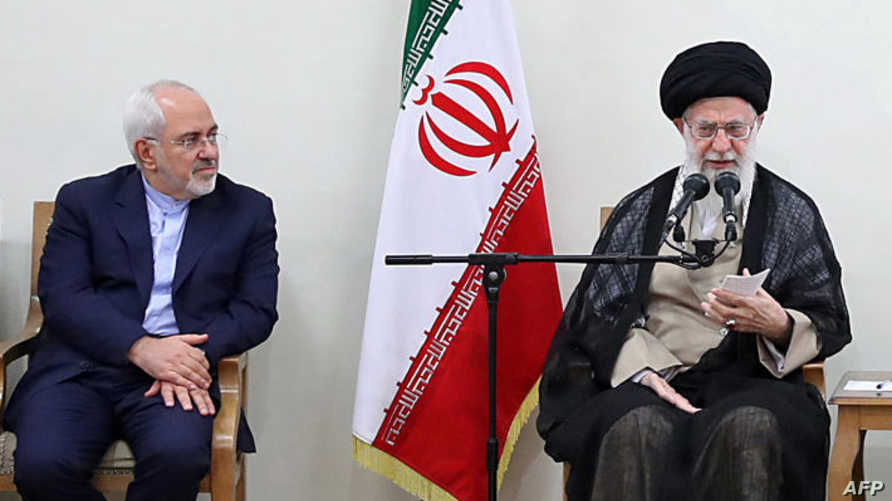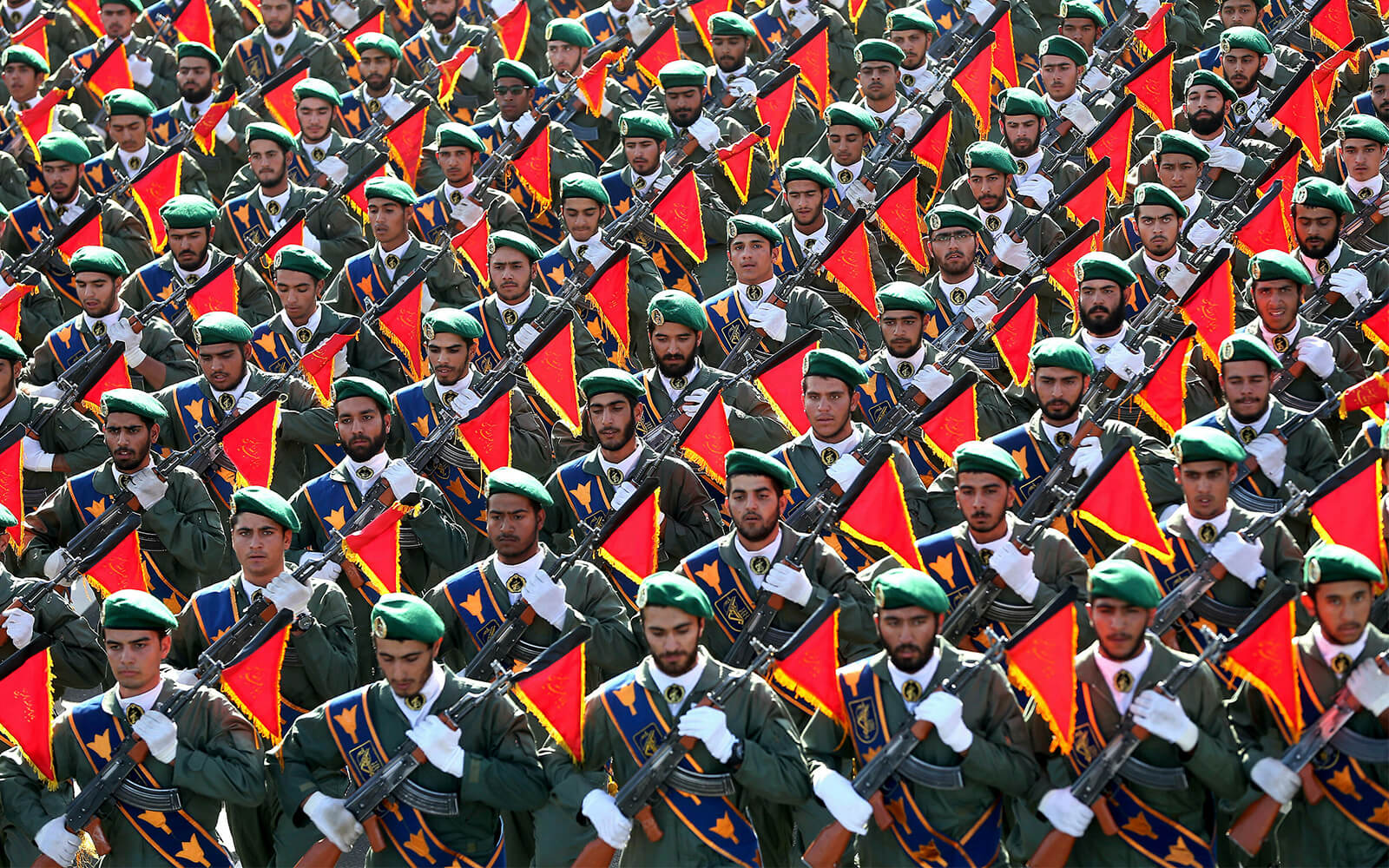A leaked audiotape of an interview of Iranian Foreign Minister (FM) Mohammad Javad Zarif, in which he is critical of the regime’s Islamic Revolutionary Guard Corps (IRGC) and its former Quds force chief Gen. Qassem Soleimani, has whipped up a political storm in Tehran. In the interview, Zarif says that the IRGC set the country’s foreign policy agenda and called all the shots, overruling many government decisions and ignoring advice. He also mentions the constant interference of Soleimani in the decision-making process and said that the General’s actions “undermined” his position. “I have sacrificed diplomacy for the military field rather than the field servicing diplomacy,” Zarif laments in the tape.
Iran’s political elite did not take kindly to Zarif’s criticism of Soleimani, who was killed in a United States (US) drone strike in Iraq last year. Hardliners wasted no time in calling for Zarif’s impeachment and labelled his words on Soleimani as “treason.” Iran’s Foreign Ministry even released a statement claiming that the comments made were Zarif’s personal opinion and not reflective of the government’s position. In a blow to the political future of Zarif, Iran’s Supreme Leader Ayatollah Ali Khamenei—who rarely speaks about the regime’s internal politics—issued a stinging public rebuke of the FM and called his remarks a “big mistake.”

Keeping all this in mind, Zarif’s leaked tape and the reactions to it have laid bare the existence of a “deep state” in Iran, run by the Supreme Leader and the IRGC. Zarif’s comments suggest that the elected government of Iran has been sidelined as mere messengers of the Ayatollah and points to the extent of power wielded by the IRGC.
Shortly after the Islamic Revolution of 1979 that culminated in the overthrow of the Pahlavi dynasty, then-Supreme Leader Ayatollah Ruhollah Khomeini ordered the formation of a band of ideologically oriented soldiers to protect the country’s Islamic system and institutions. This was the inception of the IRGC, which comes under the direct command of the Supreme Leader.
In a comprehensive research paper that looks into the ideological roots of the Revolutionary Guards, Kasra Aarabi analyses official IRGC Persian-language textbooks used to train recruits and concludes that the Guard uses an “extreme state-sanctioned model of Islamism [to] justify violence against those who criticise the regime.” In fact, in 1999, during the height of the student revolution that shook the country, Soleimani signed a letter warning then-President Mohammad Khatami that if he did not put an end to protests the military would crush it and even depose Khatami during the process; Soleimani was also instrumental in quelling the 2009 Green Movement protests.
In another incident indicating a serious rift between elected representatives and the Guards, FM Zarif resigned from his post in 2019 over being kept in the dark about Syrian President Bashar al-Assad’s visit to Tehran. At the time, Zarif was also facing harsh criticism from former IRGC members for his support of the nuclear deal. However, his resignation was not accepted by President Rouhani who said that Zarif was a key architect of the landmark 2015 nuclear deal between Iran and world powers.
In the leaked tape, Zarif says that Soleimani, along with Russia, tried to sabotage the deal and that this seriously undermined his efforts as the leader of Iran’s negotiating team to finalise the agreement. To this end, Zarif also mentions that Soleimani travelled to Russia without consulting the government to obstruct the possibility of achieving a deal with the West. The FM further criticises Soleimani’s policies in Syria, including deploying ground forces without government knowledge, which seriously damaged Iran’s long-term interests, which include an immediate exit from the current sanctions that have crippled the country. Rather than focusing on efforts to end sanctions, Iran’s military elite has pumped billions into feeding its proxies in the region and invited even stronger punitive measures by foreign actors.
There is some merit to Zarif’s reasoning. Among Israel’s strongest reasons for opposing any deal with Iran was that sanctions-relief could provide the regime with sufficient funds to support its proxies, most notably Hezbollah in Lebanon, both monetarily and militarily. It was also why the US administration under President Donald Trump decided to assassinate Soleimani. Not only were Soleimani’s actions threatening American interests in the region, but they were also weakening Iran’s ability to guard its own borders, as seen through the relative ease with which foreign intelligence agencies have carried out offensive operations on Iranian soil.

Recently there has been a spate of clandestine attacks carried out in Iran, including the assassination of Iranian nuclear chief Mohsen Fakrizadeh last year and the sabotage of the Natanz nuclear facility in April. Last month, a senior Iranian official admitted for the first time that reports of an Israeli raid on the country’s nuclear archive were true. These attacks, among others, highlight the serious flaws in Iran’s security architecture and point to the misplaced policies of Iran’s hawkish conservatives, including prioritising security interests at all costs over protecting the country’s vulnerable economy.
Iranian hardliners have played a major role in opposing the nuclear deal and promoting aggressive expansionist policies in line with the IRGC’s goals. In fact, there exists an alliance of sorts between the Revolutionary Guards and Iran’s conservative bloc. For example, in 2005, the cabinet of then-President Mahmoud Ahmedinejad, a hardline religious conservative, had a significant number of members who were either associated or have worked with the IRGC in the past.
There has also been a record increase in military candidates for the upcoming presidential vote compared to previous elections, leading to concerns about the militarisation of Iranian politics. If the conservatives come back to power, it would be a major blow to the progress made in reviving the nuclear deal. This could impact Iran’s long-term strategic goals, as a hard-line government would most likely maintain the status quo and pursue an aggressive foreign policy in the region. More importantly, such a scenario would worsen Iran’s economic woes by most probably inviting even more crippling sanctions.
The existence of a parallel system, in which the IRGC calls all the shots at the expense of the elected representatives, is a reflection of the Supreme Leader’s priorities. While Khamenei talks about justice for oppressed peoples around the world, it appears that he is losing touch with ordinary Iranians. In 2015, Time Magazine reported that “60% of the Iranian population are under 35 and have no firsthand experience of the 1979 revolution.” While the regime is busy exporting an Islamic Revolution in the region, they remain ignorant to the changing needs and goals of the people, who want to be more connected with the world. Zarif’s leaked tape only confirms this point and indicates that the demands of the Iranian people are outweighed by misplaced strategic concerns.

